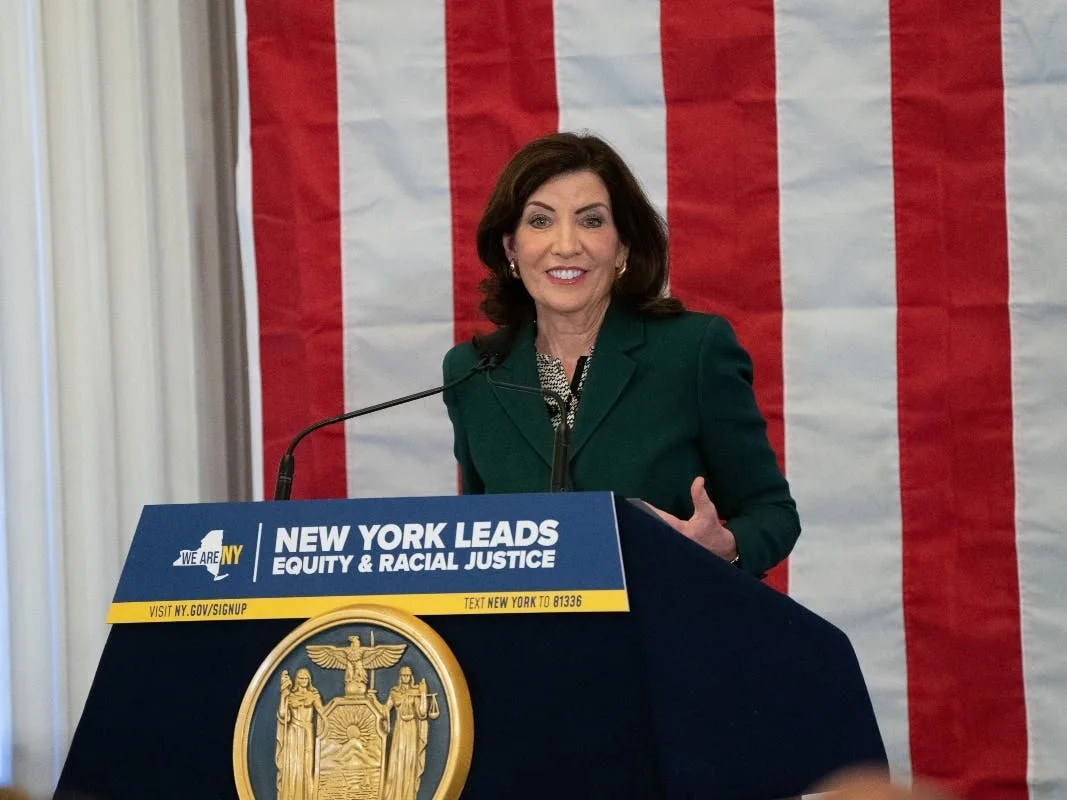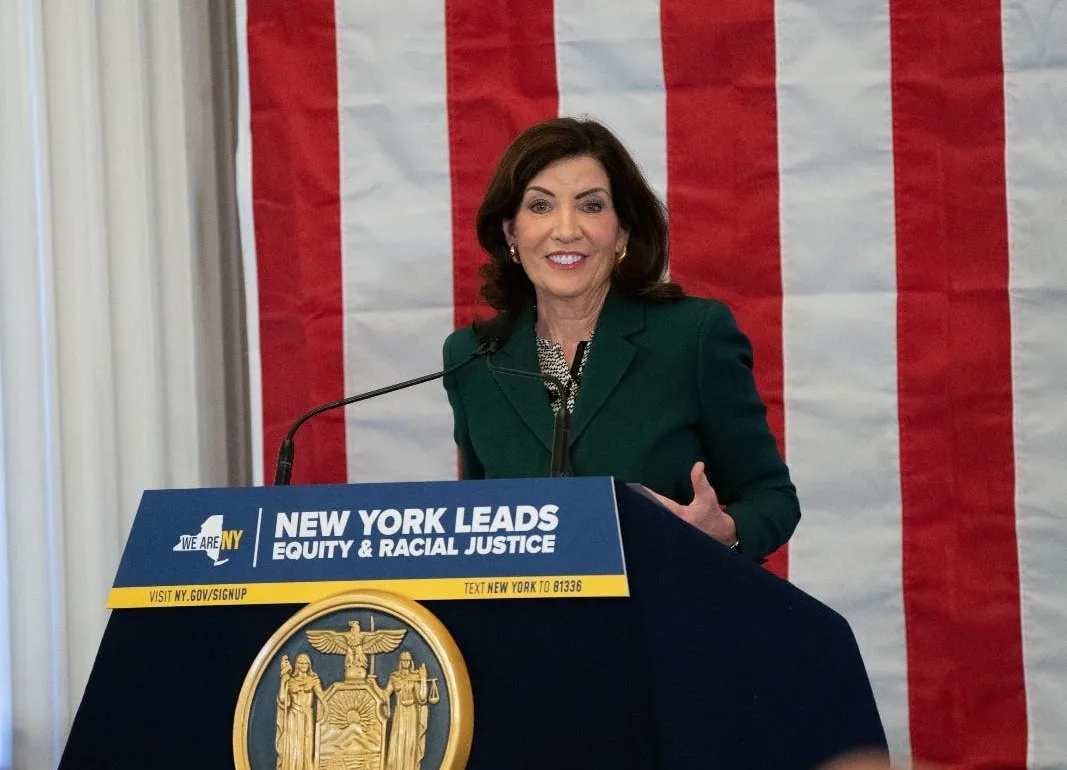
NEW YORK — Landmark legislation will establish a commission to study long-running issues of racial injustice and the appropriate ways to begin to make amends.
Gov. Kathy Hochul today signed legislation that will set New York apart from other states on issues of racial justice, creating a new commission to study reparations. This commission will start to acknowledge the horrific injustice of slavery and will be tasked with examining the legacy of slavery, subsequent discrimination against people of African descent, and the impact these forces continue to have in the present day, according to the administration.
S.1163-A/A.7691 officially establishes the New York State Community Commission on Reparations Remedies.
“Today, we are continuing our efforts to right the wrongs of the past by acknowledging the painful legacy of slavery in New York,” Hochul said. “We have a moral obligation to reckon with all parts of our shared history as New Yorkers, and this commission marks a critical step forward in these efforts.”
The legislation establishes the commission on reparations remedies, which will be composed of nine members who are especially qualified to serve by virtue of their expertise, education, training, or lived experience in the fields of African or American studies, the criminal legal system, human rights, civil rights, reparations organizations, and other relevant fields.
Although slavery is often thought of as an issue in this country that divided a pro-slavery South from a pro-emancipation North, lawmakers note that prior to the American Revolution, there were more enslaved Africans in New York City than in any other city, except Charleston, South Carolina. At one point, the population of enslaved Africans accounted for 20 percent of New York’s population, and 40 percent of colonial New York households owned enslaved Africans.
This legacy was an integral part of the development of the State of New York, and the consequences of the institution of slavery — and subsequently, discrimination and systemic racism borne of that institution — can still be observed today, the governor’s office said.
“I would like to thank Governor Kathy Hochul for signing this transformative legislation into law and for lending her support in helping New York begin our process of reckoning with the past,” Majority Leader Andrea Stewart-Cousins said. “I am grateful to Senator James Sanders for championing this cause, standing as a stalwart for positive change. As Senate Majority Leader, I am also proud to have worked diligently to help guide this historic legislation to passage in the State Senate. Together, New York can shape a future marked by justice and equity.”
The commission is tasked with examining the legacy of slavery and its lingering negative effects on people currently living in the State of New York, with the goal of issuing issue a report comprised of recommendations for appropriate action to address these longstanding undeniable inequities.
According to the new law, the written report of findings and recommendations must be submitted to the temporary president of the senate, the speaker of the assembly, the minority leaders of the senate and the assembly, and the governor no later than one year after the date of the first meeting of the commission.
The new law is being hailed as an effort, that while long overdue, represents a watershed moment.
“With the establishment of this commission, it will give us the chance to review, and look at the history of African Americans in New York State,” President of the NAACP New York State Conference Hazel N. Dukes said. “And when the report is done, it will give us the necessary tools — where we should go for economic growth, for quality health, equity in education, job training, job creation, housing — and many more things. This is a great day for New York State moving in the right direction of inclusion for all people.”
The move was also lauded by New York congressional members, including Rep. Jamaal Bowman.
“Our healing must happen not just here in New York, but across the country, so that we can truly root out the lasting impact of slavery,” Bowman said. “In Congress, we are working on monumental legislation to create a reparations commission and appropriate funding to address the harms of chattel slavery. We will continue to champion and support efforts like these until we achieve reparations. New York is setting an inspiring example by delivering on the long overdue promise to repair this harm when the federal government has yet to do so. I am incredibly proud as a Black man and a New Yorker that we are taking this step in the right direction to fostering racial healing, and I look forward to continuing to fight for these policies at the federal level.”


